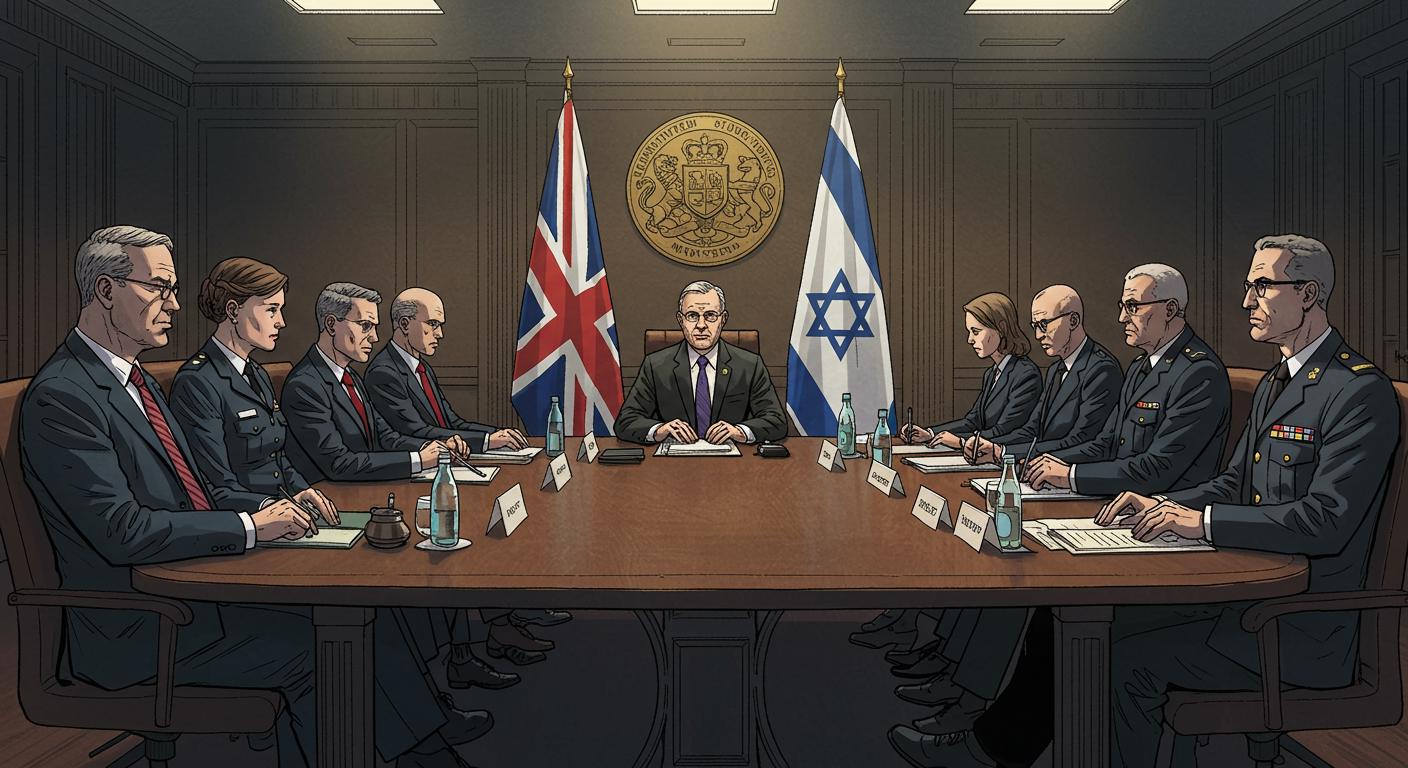It’s not every day you read a story that leaves you wondering if you’ve accidentally opened The Onion, but according to reporting from Novara Media, the UK government’s primary method for assessing whether Israel is committing war crimes in Gaza is strikingly simple: ask Israel to explain itself, and, if Israel chooses not to respond, consider the matter unresolved and move on.
Selective Curiosity and a One-Incident Conclusion
Novara Media documents that lawyers for Palestinian rights group Al-Haq, supported by organizations such as Amnesty International, Human Rights Watch, Oxfam, and the Global Legal Action Network, have described this official approach as “engineered wilful ignorance.” Jennine Walker of Bindmans solicitors, representing Al-Haq, told Novara Media that the government scrutinized just 413 so-called “incidents of concern” up to September 2024—this from a backdrop of tens of thousands of airstrikes in Gaza. Out of those, the government flagged only a single case as a possible violation of international humanitarian law.
She emphasized that this lone finding involved an Israeli airstrike on World Central Kitchen, which resulted in the deaths of seven aid workers, some of them foreign nationals. Walker noted, as highlighted by Novara Media, that this happened to be “the only strike out of tens of thousands in which they’ve found possible [violations]”—and only because “foreign people, including British people, died and Israel was forced to provide some information.”
Walker told Novara Media, “They’ve looked at an incredibly limited number of incidents, and they’ve only made that kind of finding—a possible violation—where they’ve been given information by Israel. So if Israel hasn’t provided information, which it hasn’t for the majority of incidents, they’ve said, ‘We can’t reach any sort of assessment on this.’” The thrust is hard to miss: unless Israel participates, most alleged violations simply drop off the government’s radar.
Piecemeal Analysis and Governmental Comfort Zones
The assessment does not extend to the broader picture. As Walker put it, cited in the Novara Media report, the UK government “will assess one air strike, without looking at the whole pattern of destruction of the whole health system or schools, so that’s a major flaw.” She further argued, “They’ve placed far too much weight on assurances from Israel, but without looking at statements made by army officials whistleblowers, without looking at Israel’s past conduct in other conflicts and serial breaches of international humanitarian law years before now.”
Walker summarized this process as “engineered wilful ignorance,” explaining that the government conveniently claims a lack of information, then refuses to actively seek out or weigh the information that is available. So, the official process amounts to not only asking the alleged perpetrator for incriminating details but also declining to look elsewhere when none are forthcoming. One has to wonder what would happen if all investigative bodies adopted this approach—should we send a survey to every suspect and let them self-report?
Amnesty International, as cited in the same Novara Media article, has described the situation in Gaza as a “live-streamed genocide,” emphasizing that abundant public evidence exists, even as official assessments hinge on the willingness of Israel to provide clarifying detail.
Diplomacy Above All: The F35 Exception
Novara Media details that, in the face of mounting pressure, the UK government banned certain arms sales to Israel in September 2024, but kept an exemption to continue providing components for the F35 fighter jet, albeit indirectly. The rationale for all this, as Defence Secretary John Healey submitted to the courts, was that suspending the UK’s participation in the F35 programme would have “a profound impact on international peace and security.” The government further argued, in evidence submitted to the court, that a cessation “would undermine US confidence in the UK and Nato at a critical juncture in our collective history and set back relations.”
Yasmine Ahmed, UK director of Human Rights Watch, described this position to Novara Media as “dangerous in any context, but with Donald Trump at the helm in the White House, it borders on the grotesquely absurd.” As noted in the article, the Trump administration’s statements about abandoning the US role as Europe’s security guarantor make this kind of rationale seem even less convincing.
The Israeli Air Force’s use of “beast mode” on F35s—adding heavier payloads and sacrificing stealth, apparently confident that Gaza’s lack of air defenses makes this tradeoff worthwhile—is documented in Novara Media’s piece. By contrast, the same kind of aircraft faced real opposition in the skies above Yemen, a fact the outlet also describes.
Walker, for her part, told Novara Media that “it should be possible to continue supplying the global pool, but to say we don’t want the parts that we make to end up in [Israeli] fighter jets or maintaining Israel’s fleet,” questioning whether any real distinction is being drawn in practice.
Statements and “Assessments” Without Substance
Each statement by officials is followed by another public condemnation or reassurance. Last week, the UK, France, and Canada jointly condemned Israeli military escalation in Gaza while demanding greater humanitarian aid access. The question, put plainly by Walker, is whether any of these assessments or statements have shifted government policy: “We’ve seen their assessment of risk of genocide from July last year. Have they made a new one? What are their assessments now?” she asked, quoted by Novara Media. “Can it be backed up by action, this statement? Are they working with allied countries to prevent F35 parts being supplied to Israel? If not, it’s just empty words.”
Hamish Falconer, Labour’s Middle East minister, told the House of Commons (as described by Novara Media), “We continue to conduct assessments across a full range of responsibilities under international law. It is simply not true to suggest that we are avoiding making any internal assessment in order to justify policy. We continue to assess these things carefully. We do it on a rolling basis, regularly.” On paper, the due diligence is ever-present; in practice, it appears to pivot largely on official Israeli disclosures.
Closing Thoughts: The Curious Case of Self-Reporting
There’s a peculiar logic at play when investigating potential war crimes by depending so thoroughly on the accused’s cooperation, particularly when, as Amnesty International frames it, Gaza’s destruction is arguably “the most documented genocide in history.” Is this just diplomatic convenience, or is it something closer to bureaucratic performance art, designed to avoid the discomfort of action?
One has to wonder if future histories on international law and accountability will cite this approach as an object lesson in self-disproving diligence. When the finding of “no evidence” is predicated on not seeking evidence, is this engineered ignorance the best label, or merely the most generous?







